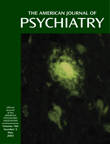Cutting-Edge Medicine: What Psychiatrists Need to Know
Keeping up with certain aspects of general medicine is an absolute necessity for the competent practice of psychiatry. It is also increasingly hard to do. For those individuals, like myself, who have not been able to stay current with all of their back issues of the New England Journal of Medicine,Annals of Internal Medicine,JAMA, and the Lancet, APA’s Review of Psychiatry series offers a readable update that covers a handful of interesting topics. Cutting-Edge Medicine is number 21 in this series, and Nada Stotland, the volume editor, has pulled together four loosely affiliated but nicely written chapters summarizing pertinent subjects in general medicine likely to be of particular interest and importance to practicing psychiatrists. These chapters deal with cardiology, gastrointestinal diseases and disorders, solid organ transplantation medicine, and psychiatric disorders of the menstrual cycle.
The cardiology chapter includes easily comprehensible discussions of cardiac complications of neuropsychiatric drugs, including torsade de pointes and other cardiopsychiatric concerns now making headlines in psychiatric newspapers and advertisements. The gastrointestinal disorder chapter traverses the gastrointestinal tract from top to bottom (literally) and contains excellent discussions of all manner of hepatic disease and their impact on hepatic metabolism of psychiatric medications and on the hepatotoxicity of these medications. The chapter on solid organ transplantation will be of particular interest to consultation-liaison psychiatrists. The final chapter addresses all aspects of assessing and managing premenstrual disorders.
My major frustration with this book is not with the quality of the contributions but with the publishing strategy. The individual servings are of good quality, but the overall meal size is insufficient; this volume is too thin and too selective for my tastes. Do these four chapters really deserve to be published as a separate book? By necessity such a volume neglects huge numbers of other important medical concerns at the forefront of psychiatric practice. Readers will have to go to some recent excellent textbooks of consultation-liaison psychiatry, general primary care texts, or recent overview articles in major primary care journals, for example, to read about the many other cutting-edge aspects of general medicine omitted here that psychiatrists need to know. Nevertheless, within its admittedly limited scope, this volume’s individual chapters will serve readers well.



